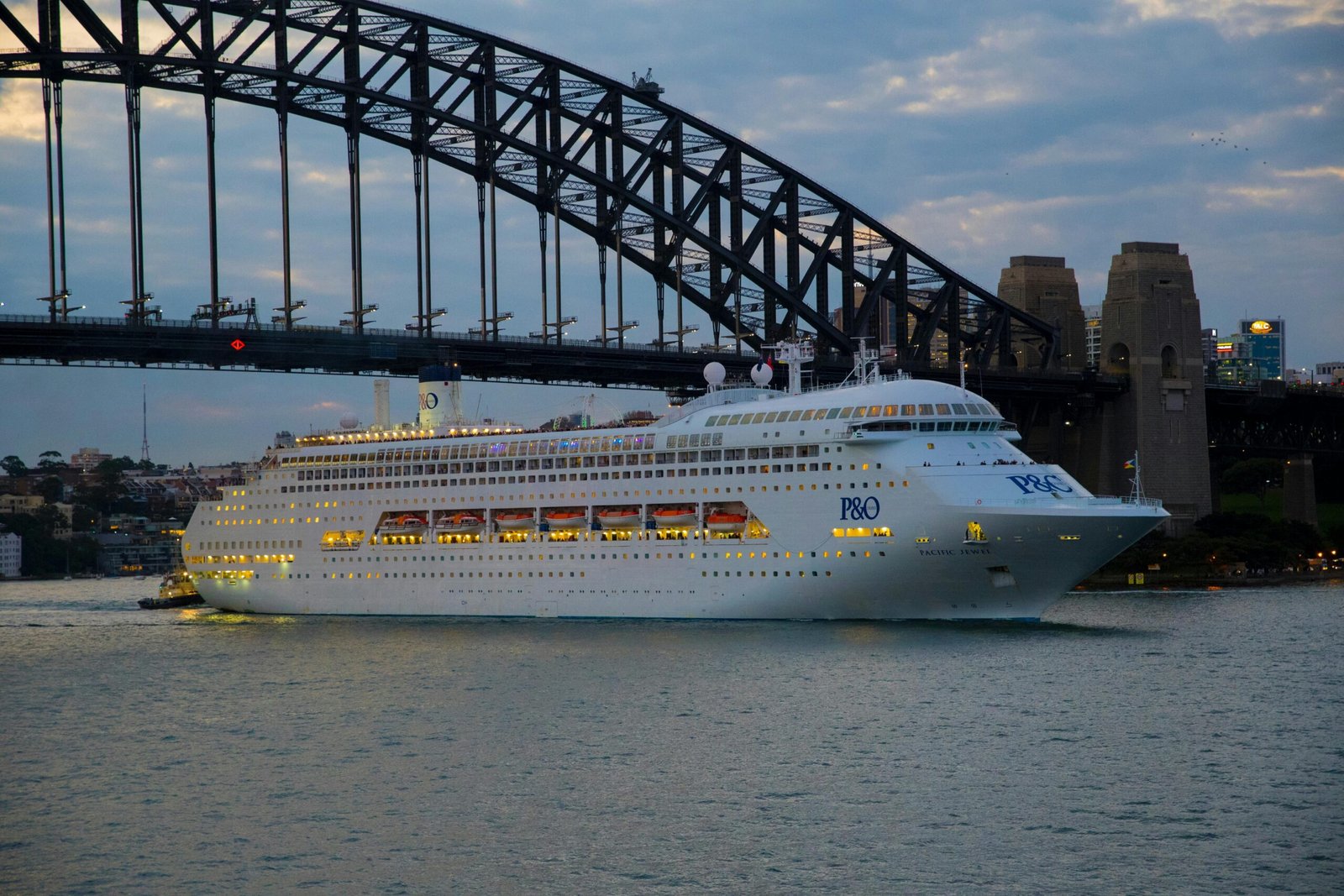Cruise Ship Injuries
Cruises are among the most popular ways to vacation, offering a unique blend of relaxation, entertainment, and exploration. Whether you’re departing from Miami to the Caribbean, from Southampton to the Mediterranean, or from New York to Alaska, cruising promises an all-in-one experience.
But while most voyages are trouble-free, cruise ship injuries happen more often than many passengers realize. From slip and fall accidents to outbreaks of illness, or even incidents during on-shore excursions, injuries at sea can be serious, life-altering, and legally complex.
If you’ve been injured on a cruise ship, or simply want to be prepared and informed, this comprehensive guide will explain:
-
The most common types of cruise ship injuries
-
Why and how these injuries occur
-
What steps to take immediately after an accident
-
How compensation works under maritime law
-
Frequently asked questions
-
Practical safety tips to reduce your risk
Whether you’re a traveler from the US or the UK, understanding your rights and responsibilities is essential.
What Are the Most Common Cruise Ship Injuries?
Cruise ship travelers are subjected to thousands of injuries annually. The injury can range from the simplest form of a bruise to a life-altering long-term disability. Most frequent types are:
Slip, Trip, and Fall Injuries
Alterations in the direction of the ship, spilled drinks, or slippery decks can turn a normal stroll into an accident. Some of the common situations include:
-
Wet floors over pool and buffet areas
-
Torn or frayed carpeting
-
Missing or loose steps
-
Inadequate lighting on stairs or corridors
Slips and falls result in sprains, fractures, or head trauma.
Illness Outbreaks
Shared accommodation, communal dining, and long buffet services put cruise ships at risk of outbreaks of gastro-intestinal disease, mainly norovirus. Food poisoning may also be brought about by:
-
Food that is not stored or prepared adequately
-
Contaminated water supplies
-
Cross-contamination in the kitchen
Large-scale outbreaks have led to quarantined ships and huge evacuations in some cases.
Swimming Pool and Spa Injuries
Hot tubs and pools are popular amenities but also common sites for:
-
Slipping on moist tile and falling
-
Drowning or near-drowning
-
Infections from dirty water
Children are especially susceptible to these accidents.
Elevator and Escalator Injuries
Mechanical failure, unanticipated stops, or incorrect maintenance can cause riders to trip, fall, or become trapped.
Falling Overboard
Though rare, slipping overboard is typically fatal or else severely injuring. Drinking, sailing through turbulent waters, or mere rowdiness are all culprits.
Shore Excursion Injuries
Many injuries occur on land while on excursions booked or arranged by the cruise line and consist of:
-
Bus accidents on poorly surfaced roads
-
Boat or snorkelling accidents
-
Zip-line, hiking, or ATV tour accidents
Liability for accidents such as these may be complex, depending on whether the tour has been arranged by third-party contractors or the cruise line.
Assaults and Crimes Onboard
Reports of assaults by other guests or even staff members have surfaced. Lack of screening or breakdown in security can be the reasons.
Medical Malpractice by Ship Doctors
Most cruise ships have onboard medical facilities but of varying quality. Misdiagnosis or improper treatment of an injury can make it worse, causing more harm.

Why Accidents on Cruise Ships Happen
Understanding why will assist passengers as well as legal experts decide whether an injury resulted from negligence or not. Some of the reasons are:
-
Poor maintenance: Ships must be maintained and inspected periodically. Loose handrails, broken tiles, or faulty elevators can all be dangerous.
-
Short staffing or inept employees: Employees can be insufficient in number, or inadequately trained to safety.
-
Omissions of dangers: e.g., forgetting to put up wet floor signs after mopping.
-
Crowding: Overloading passengers during performances, buffet seating, or boarding/disembarking the tender increases risk.
-
Unsmooth seas or sudden movement: Weather is unavoidable, but the crew should take reasonable care.
-
Negligence on the part of tour operators: If third-party operators had not been properly screened by the cruise line, they could be contributorially negligent.
There is a duty of reasonably safe conditions owed by cruise operators. Violation of this duty is a basis for recoveries.
What Should You Do If Injured on a Cruise
If you are injured or become sick while on a cruise, whether you have a claim depends upon what happens within the first few hours. Here is what to do:
Get Immediate Medical Attention
Always go see the ship’s doctor, even for a minor injury. This creates an official record linking your injury to the cruise.
Report the Incident
Inform a ship crew or security staff. Have someone fill out an incident report and take a copy for yourself.
Document Everything
-
Take clear photos or video of the accident scene and any hazardous factors (e.g., puddle with no warning sign).
-
Take photos of your injuries at intervals to monitor progress.
-
Take the contact details of willing witnesses to provide testimony of what happened.
Maintain Receipts and Records
They are:
-
Medical bills
-
Prescription charges
-
Crutch, bandage, or other transportation records needed
Follow Up After Disembarkation
When returning home, visit your own physician for a complete evaluation. Get copies of all treatments and reports.
See a Cruise Ship Injury Attorney
Since maritime law differs from regular law and time limits are usually less, deal with a solicitor or attorney who specializes in cruise injuries ASAP.
How Does Compensation Work for Cruise Ship Injuries?
Your Cruise Ticket Contract Matters
Your ticket is more than a boarding pass — it’s a contract. It will usually state:
-
Where a lawsuit can be brought: Usually Miami, Florida, regardless of where your cruise originated.
-
Time limits: Most tickets have you give notice of a claim within 6 months and sue within 1 year.
This is much lower than typical US personal injury statutes of limitations (usually 2-3 years) or UK (usually 3 years).
Maritime Law Principles
The majority of cruise ship injury claims are governed by admiralty law, a distinct body of laws that covers incidents on navigable waters. It has standards of care specific to the ship operator.
Who Can Be Held Liable?
Depending on what happened, liable parties could be:
-
The cruise line itself (for careless crew or negligence on the ship)
-
Independent contractors, such as doctors onboard
-
Even manufacturers, if there is defective ship equipment
How to Establish a Cruise Line Was Negligent
To succeed in your claim, you generally need to prove:
-
Duty: The cruise line had a duty of ordinary care to you.
-
Breach: They violated this duty (such as not repairing a known defect).
-
Causation: You were injured as direct result of this breach.
-
Damages: You suffered actual losses (medical bills, lost wages, pain).
Because cruise lines want to repair defects or lose video, be sure to get your own proof.

What Damages Can You Recover?
Typical damages recovered in cases of cruise injury are:
-
Medical expenses: Upfront costs incurred on board and ongoing treatment or rehab.
-
Lost income: If your injury caused work lost.
-
Pain and suffering: Physical discomfort and emotional distress or loss of enjoyment of life.
-
Ongoing care requirements: For life-long disabilities.
In wrongful death situations, surviving family members can recover additional damages under maritime wrongful death laws.
Safety Tips to Prevent Cruise Injuries
Although all accidents cannot be avoided, taking preventive measures can significantly lower your risk. These are helpful cruise safety tips:
-
Dress in deck shoes with a non-slip sole — particularly around pool areas.
-
Use stair handrails, especially when the ship is in motion.
-
Do not drink heavily, which dulls judgment and balance.
-
Do not lean or scramble over railings.
-
Have children under your care all the time.
-
Pay special attention to muster drills so that you are familiar with emergency procedures.
-
Shower or wash your hands frequently to avoid norovirus.
-
If seasick or losing balance, stay close to the floor and hold handrails. A minor dizziness has a good possibility of becoming a fatal fall.
FAQs on Cruise Ship Injuries
Can you sue the cruise line if you slip and fall on the ship?
Yes — if you can demonstrate the cruise line was negligent. For example, if staff members failed to clean up a spill promptly or failed to post warning signs.
Are cruise medical malpractice claims special?
Typically, yes. Most cruise lines assert that onboard doctors are independent contractors, which restricts the liability. Your lawyer can navigate these technicalities.
What if I signed a waiver to take an excursion?
Waivers may be invalid, especially in cases of gross negligence. It would depend on the local laws and what the waiver said.
How much time do I have to sue?
Large cruise companies (like Carnival, Royal Caribbean, or Norwegian) generally require you to:
-
Send written notice of injury within 6 months
-
Sue within 1 year
Missing those deadlines generally waives your right to compensation entirely.
Is there a variation if I’m UK but went on a US cruise line?
Yes. The majority of contracts have jurisdiction in US courts, most likely Florida. UK passengers do, however, have some rights under UK consumer law protection. This usually means the utilization of a solicitor who acts as go-between with US maritime lawyers.
Voice Search Friendly Q&A
“How do I deal with it if I’m injured on a cruise ship?”
Notify them in a timely manner, get medical attention, document everything, and find a cruise injury lawyer.
“Who pays me if I get hurt on a cruise?”
If by fault, the cruise line or their insurance companies may compensate you. If you did it (e.g., drunk falls), you may compensate yourself.
“How do I sue a cruise line?”
Typically by filing a claim in the court listed on your ticket contract (most likely Miami) within strict time constraints. A maritime lawyer simplifies this for you.
LSI & Semantic Keywords
-
maritime injury attorney
-
passenger slip and fall on a cruise
-
norovirus cruise ship outbreak
-
vacation accident lawsuit
-
cruise line duty of care
-
medical negligence on the high seas
-
shore excursion accident claims
-
cruise ship plunge accidents
-
personal injury compensation for a cruise holiday
Final Thoughts: Safeguarding Your Health and Legal Rights at Sea
Cruises are a luxury of indulgence, relaxation, and adventure. The vast majority of travelers enjoy a wonderful journey with no mishaps. Catastrophes and disease do occur — generally due to circumstances that would not have arisen with adequate attention by cruise lines.
By knowing the most likely danger, looking out for typical safety procedures, and being familiar with your admiralty rights, you can enjoy a more comfortable cruise. If the unexpected happens, acting fast — in getting the report of the accident, getting medical attention, and consulting a cruise injury lawyer — guards your health as well as your legal interests.
